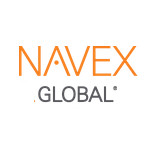By Keli Johnson Swan
Scott & Scott LLP
Virtualization can reduce the number of physical machines required in an environment and have several other benefits, but it can also require an understanding of complex technical and licensing concepts. Failure to properly license the environment can subject the company to unbudgeted licensing and compliance fees. The following list includes several common questions and concerns related to licensing VMware.
I. Third Party Use: Can VMware Tools be accessed by third parties?
Yes, a third party may access VMware Tools on a machine owned by the licensee, but only if a Guest Operating System is installed within a Virtual Machine. The End User License Agreement defines a Guest Operating System as “instances of third-party operating systems licensed by You, installed in a Virtual Machine and run using the Software.” It is critical to note that the customer is responsible for ensuring that any third party it distributes VMware Tools to complies with the terms of the license agreement, or it may be liable for potential copyright infringement and breach of contract claims. See VMware End User License Agreement (“EULA”), Sections 1.3 and 2.5.
II. What other restrictions apply to Third Party Use?
Although a customer may use VMware to deliver hosted services to third parties, there are numerous restrictions regarding what functionality may be shared without VMware’s written consent. Third parties may not use the software as service bureaus or application service provider or similar capacities, and licensee must not transfer or sublicense any software without VMware’s consent. Further, certain benchmark testing results may not be shared externally, nor any reverse engineering information of the software. The license agreement also restricts circumvention of any security protocols, which are also covered by the Digital Millennium Copyright Act (“DMCA”). See VMware End User License Agreement (“EULA”), Section 3.1 and 17 U.S.C §1201.
III. Conflicting Terms: Does an Order supersede the End User License Agreement?
No. All terms of the Order are subject to the EULA and are not deemed valid until accepted by VMware. The Order may outline specific use of a product but if the terms conflict, look to the EULA. A change to the EULA requires VMware’s written agreement to change standard license terms. See VMware End User License Agreement (“EULA”), Section 4.
IV. Audit Rights and Record Retention: What are VMware’s audit rights?
The EULA grants VMware the right to audit a company at any time during the License Term (identified in the Order) and two years following the expiration of the license term. This provision requires the customer to retain records for up to two years following the expiration of the license term and allow VMware to conduct a software audit to ensure compliance with the license agreement.
VMware or a third-party auditor may audit a customer with “reasonable notice” once in a 12-month period during normal business hours. A customer must immediately remediate any non-compliance. If the audit reveals the customer has underpaid license fees of more than 5% or failed to maintain proper records of software use, it must pay VMware’s costs to audit in addition to any fees for remediation. See VMware End User License Agreement (“EULA”), Section 5.
This provision represents one of the largest risks during a customer’s relationship with VMWare. The customer must accurately maintain all records related to VMware usage and license information. If a customer fails to properly account for its usage, VMware may attempt to extrapolate the data in a light least favorable to the customer, which could significantly increase its monetary damages for non-compliance. Additionally, failure to comply with the terms of the license agreement could result in involuntary termination. See VMware End User License Agreement (“EULA”), Section 10.
V. Termination: Does VMware have the right to terminate the licenses?
Yes. VMware is allowed to terminate the license pursuant to the EULA for the following reasons:
a. Breach of the Agreement
VMware is allowed to terminate the agreement for non-payment of the Order within 10 days of sending the customer a written notice. Additionally, VMware is allowed to terminate the licenses if a customer breaches the terms of the agreement and does not correct the breach within 30 days of receipt of VMware’s written notice. This provision is particularly important because VMware can terminate the licenses for failing to comply with the licensing terms.
b. Insolvency
VMware may also terminate the licenses if a customer becomes insolvent (through the admission in writing or in bankruptcy proceedings).
The End User License Agreement does not contemplate termination by the licensee except upon the termination of the license term. See VMware End User License Agreement (“EULA”), Section 10.
VI. Effects of Termination: What happens to the licenses after Involuntary Termination?
If VMware terminates a license, the customer no longer has the right to install or access the software. Additionally, the EULA requires the customer to immediately stop using the software and uninstall it and return any media. See VMware End User License Agreement (“EULA”), Section 10.
VII. Confidentiality: Can a customer share VMware pricing or purchase orders?
No. Specific information, including license keys, pricing, marketing materials, or any other non-public information exchanged between the customer and VMware are confidential and may not be shared without VMWare’s permission. It is important to note that this provision survives the termination of the agreement. See VMware End User License Agreement (“EULA”), Section 10 and 11.1.
VIII. Data Privacy Implications: Does VMware protect customer data?
The EULA acknowledges that VMware may obtain and share with a worldwide group of companies in furtherance of providing software services, but it agrees to act as the controller of this information and to comply with the applicable data protection legislation. See VMware End User License Agreement (“EULA”), Section 11.4.
Customers should carefully analyze VMware’s license terms and agreement in order to ensure that VMWare’s protections are sufficient for the customer’s needs.
See “VMware Audits – What You Need to Know About Licensing Rules Pt. I.”
Join Our LinkedIn Group
 A new webinar from LawGeex will cover how to create an internal contract triage process in five steps, all the way from planning through to execution.
A new webinar from LawGeex will cover how to create an internal contract triage process in five steps, all the way from planning through to execution.







